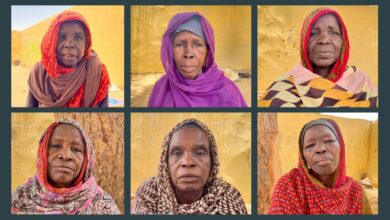
Dr Isa Ali Pantami, Nigeria’s Minister of Communication and Digital Economy, has reacted to the allegations associating him with extremist views and terrorist groups saying that his old fatwas (Islamic rulings) should be read within historical context.
Speaking during his Ramadan tafsir session at the Annur Mosque in Abuja, Nigeria’s capital on Saturday, April 17, Pantami, who is under public scrutiny for his past stance on extremism, said his old views and religious stances were shaped by lack of facts and he no longer holds them.
The Minister, who many are asking for his resignation as a cabinet member, revealed that he started preaching as early as when he was 13, noting however, that numerous happenings and developments have changed many of his religious and political views as he advanced in age and acquired more information.
Pantami added that as a human being he was liable to make mistakes and has always been ready to change stances based on new viewpoints supported by evidence.
“I have changed my stance on some issues based on additional facts even after expressing Fatwa, a nonbinding religious opinion in response to a question posed to me,” he said.
Pantami said as a Muslim, he doesn’t support any act of terrorism, adding that whoever says he still supports jihadi groups like Al-Qaeda and Taliban is entitled to his own opinion but not a fact.
He explained that some of the clips being circulated in which he was quoted supporting jihadi groups were very old and were recorded as early as in 1990s when he didn’t gain enough maturity.
“A teenager who was an undergraduate at university is not mature enough,” he said.
He quoted the boxing legend Muhammad Ali, explaining that sticking with a single viewpoint after years of exposure and knowledge would make one stupid.
“You can find many things a man did at a young age with lots of mistakes even if they aren’t entirely incorrect,” he said.
He called on people to consider his current fatwas where no similar utterances were made, not the old ones stressing that living at many places around the world made him more exposed, advanced and knowledgeable.
Pantami said it was not only him who changed views on the international politics of the time. Many world leaders switched positions.
“If we recall, President Joe Biden of the United States, then as a Senator in America, did not support the invasion of Afghanistan by his country,” he said.
“And at that time, I also did not. So, anything that will lead to war is what I have always been against. That is why I don’t like injustice.”
“Barrack Obama as American President then sought for understanding between the Muslim nations when he realised what he was thinking about them was wrong. So, at any given time, the last position is the right position, and that represents my views.”
Pantami added that his relationship with non-Muslims has always been peaceful and accommodating.
“I once saved two corps members who were about to be lynched in Bauchi State during a fight between Christians and Muslims. I personally took them to the mosque to save their lives.”
Refuting the claim that he was once expelled from Abubakar Tafawa Balewa University (ATBU), Bauchi State, Pantami said he was never thrown out of the school.
“So, anybody who will protect Christians will you still call him a fanatic? Also, I want to say that I was never suspended or expelled from any school as a student or lecturer because of my views, especially on religious matters.”
He explained that he was only given an option to either be a graduate assistant or Imam and he chose the former, leaving the post of Imam after a new mosque was built for him in the Bauchi city.
Support Our Journalism
There are millions of ordinary people affected by conflict in Africa whose stories are missing in the mainstream media. HumAngle is determined to tell those challenging and under-reported stories, hoping that the people impacted by these conflicts will find the safety and security they deserve.
To ensure that we continue to provide public service coverage, we have a small favour to ask you. We want you to be part of our journalistic endeavour by contributing a token to us.
Your donation will further promote a robust, free, and independent media.
Donate Here




